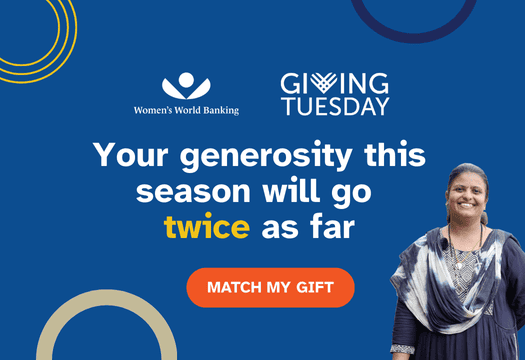Women’s engagement with financial services leads to their greater economic empowerment, including greater control over financial decisions and increased independence.
However, three-quarters of the world’s women are still excluded from financial services. In Indonesia, rural women are among the most financially unserved and underserved populations. Women alone make up 63.8% of all informal workers in Indonesia, mostly in the agricultural sector in rural Indonesia.
Rural communities in Indonesia generally face limited access to financial services. Limited mobility, infrastructure and literacy play a role in the availability of formal financial services. Account ownership in Indonesia is 30% lower than the East Asia and Pacific average, and rural adults are 10% less likely to have an account than their urban counterparts. For rural women in particular, access to financial services is intertwined with safety issues, as women often have to travel long distances to access ATMs and bank branches.
In the face of climate change, rural communities, and women in particular, are more vulnerable because of the increased risk of climate-related disasters that could disrupt their agriculture-based livelihoods. Our researchers traveled and spoke with these women -many of whom depend on seasonal crops for their livelihoods- to explore the landscape of financial inclusion in unserved and underserved rural areas. We also engaged with policymakers, financial service providers, civil society organizations, and other development partners to sharpen our analysis and promote tailored ways to meet the unique financial needs of rural women.
Our journey, whether to a coffee-growing village or fishing communities, reveals two things: climate risks that will threaten rural women’s finances, but also opportunities for financial services to expand their reach and services with the support of technology and innovation.
We are pleased to present Reaching Rural Women: Catalyzing Financial Inclusion at the Edge of Finance, which provides actionable insights to inform policymakers, financial service providers, civil society organizations, and relevant stakeholders to expand financial services to rural areas by implementing tailored financial solutions that truly address the challenges and needs of rural women.
Three key insights from the report:
- Rural women use multiple strategies to manage their money in the face of limited access and climate risks, including income diversification and leveraging social capital. Financial services need to be tailored to rural women’s financial habits and challenges. “I can get IDR50 million for each orange harvest season, and I keep some of this money in a nearby grocery store. I am confident because I know the owner very well and I trust her. I have an estimate of how much [money] there is when I come and pick up my regular groceries. So, if I run out of rice, I can easily pick up another bag of rice I need from that store until my balance runs out. Both the owner and I keep manual records for tracking purposes. Basically, saving at the grocery store helps me keep my money safe and gives me insurance that my family will not starve, at least for the next eight months.” – A woman farmer.
- The phygital model, including through bank agents, combines physical and digital elements to address challenges in rural communities, particularly for women. Through face-to-face touchpoints, it builds trust and engages those who are reluctant to adopt digital solutions and offers tailored financial services that meet the specific needs of these communities, where connectivity issues and seasonal economic activities are prevalent.
- The report finds that villages with women leaders have greater financial access for both genders, suggesting a positive correlation between women’s political leadership and financial inclusion. One example comes from the village of In Maginti (West Muna District – Southeast Sulawesi). The wife of the village head serves as a bank agent and organizes a savings and loan group. Recognizing the benefits to her community, she sees that the village’s progress attracts the attention of local and central government. She also understands the importance of government programs channeled through bank accounts and is actively involved in financial inclusion initiatives for her community.




